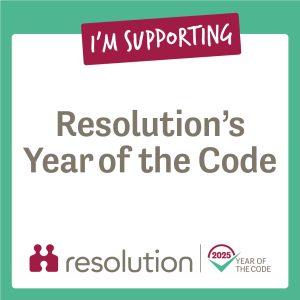Divorce can be one of the most challenging times in anyone’s life. Whether you’re considering it, in the middle of proceedings, or nearing the end of the process, understanding your rights and options is crucial. This post aims to give you a comprehensive guide to help simplify the complexities of divorce, covering everything from legal steps to financial considerations.
Understanding the Legal Basics of Divorce
Divorce is the legal dissolution of a marriage. With the introduction of the no-fault divorce law, couples no longer need to assign blame to end their marriage. The process generally involves:
- Filing a Divorce Application: This is done through the government’s online portal or via paper forms.
- Conditional Order: Previously known as the decree nisi, this confirms that the court sees no reason the divorce cannot proceed.
- Final Order: This is the last step, officially ending the marriage.
It’s essential to seek advice from an experienced divorce lawyer to ensure the process runs smoothly and your interests are protected.
Financial Settlements: Securing Your Future
One of the most significant aspects of divorce is reaching a financial settlement. This includes dividing assets such as property, savings, and pensions. Here are key elements to consider:
- Financial Orders: These are court-approved agreements outlining how finances will be split.
- Divorce Pensions: Many people overlook pensions, but they can be among the most valuable assets in a marriage.
- Divorce Settlements: Aim for a fair division based on contributions, needs, and future earning potential.
A solicitor, often in conjunction with a financial adviser can help you navigate these discussions and reach an agreement that ensures financial security.
Parenting Through Divorce
For couples with children, co-parenting arrangements are a priority. The court’s primary concern will always be the child’s welfare. Options include:
- Mediation: This involves working with a neutral third party to reach an agreement about childcare arrangements.
- Parenting Plans: A written agreement outlining how you’ll share responsibilities post-divorce.
If disputes arise, the family court can issue orders to resolve issues such as with whom the child should live, and the contact arrangements with both parents.
Navigating Religion and Divorce
For individuals with specific religious considerations, divorce may involve additional steps. For example:
- Islamic Divorce: Muslims may need to obtain both a civil divorce and an Islamic talaq.
- Other Faiths: Speak to your religious leader for guidance on faith-specific requirements.
Balancing civil and religious obligations is essential to ensure both are respected.
Divorce in Scotland: What’s Different?
If you are divorcing in Scotland, there are some differences in legal processes compared to England and Wales. For example, the grounds for divorce and financial settlement rules vary slightly. Consulting a solicitor familiar with Scottish law is highly recommended.
Online Divorce: Convenience at Your Fingertips
The rise of online divorce services has made the process quicker and more affordable for many couples. While it’s not suitable for every situation—especially where children or significant assets are involved—it can be a viable option for simpler cases. Ensure the service you use is reputable and provides access to legal advice if needed.
When Mediation Is the Best Option
Mediation offers a less confrontational way to resolve disputes. This process can save time, reduce costs, and help maintain amicable relationships. A trained mediator can assist with:
- Dividing finances
- Child arrangements
- Communication strategies moving forward
Preparing for Life After Divorce
Divorce isn’t just about ending a marriage; it’s about starting a new chapter. Consider these steps to rebuild:
- Legal Review: Update wills, title deeds, and financial accounts.
- Emotional Support: Seek counselling or join support groups to help with the transition to your new life.
- Financial Independence: Create a budget, set goals, and consult a financial planner if needed.
Common Pitfalls to Avoid
- Rushing the Process: Ensure you fully understand the implications of any agreement. Seek legal advice as soon as possible to ensure that you receive the best possible financial settlement.
- Ignoring Pensions: These can be a substantial part of your financial future. Do not ignore claims for pension share between you and your spouse.
- DIY Divorce Without Advice: While tempting, this can lead to costly mistakes. Don’t fall into the ‘remarriage trap.’ You should ensure that all financial claims are addressed at the same time as the divorce.
Conclusion
Divorce is never easy, but with the right guidance and support, you can navigate this challenging time successfully. Whether you’re just starting or seeking advice on complex matters like financial settlements or child arrangements, professional help is invaluable. Reach out to a trusted solicitor to ensure your rights are protected and your future is secure.
Need advice tailored to your situation? Contact us today to start planning your next steps.
Resources
To enhance your understanding of divorce-related matters in the UK, here are some trusted links to helpful online resources:
- GOV.UK Divorce Guidance: For official information on the divorce process, including eligibility, applications, and forms, visit GOV.UK.
- Resolution: A network of family law professionals committed to a constructive approach to divorce and separation. James Thornton is a member of Resolution and adopts the Code of Practice. Learn more at Resolution.
- UK Parliament News: Stay informed on legislative updates affecting divorce law via the UK Parliament News.
- National Archives: Explore historical and legal records related to divorce in the UK at the National Archives.






